Honoring and Enjoying Our Differences vs “Resolving” Them
Can we really “resolve” our differences? And do we want to?
One thing I learned in Matrix is to see differences as a good thing. It is our fear of difference, and suppression of difference, that creates energetic blocks in groups and relationships–not the differences themselves.
The words, “Let’s agree to disagree” used to drive me nuts. They represented a failure of imagination–an unwillingness or lack of commitment to the process of reaching understanding.
Sometimes they mean that, but they might also mean something else: we don’t have to agree in order to get along. We don’t have to be the same to be in harmony.
It sounds obvious, but there are many ways we are taught to squelch difference in ourselves and in others. Our culture encourages forms of togetherness that are based on agreement. We bond by venting and having a common complaint. We collude with each other against a common enemy. We collapse our differences in the hopes of finding validation and togetherness. We hide our differences and are ashamed or confused about them.
How many times have you asked, “Am I normal?”. Are you really asking, “Is it OK for me to be different in this way?”. The Ugly Duckling story only turned out OK when she found others just like her. Until then, she was ugly. That story left me confused–what if I never find a group of swans to claim me? Does that mean there really is something wrong with me?
I was taught to attack difference, and criticize it, looking for what is correct and unarguable. But why argue at all? It’s something I’ve had to unlearn.
Strength and wisdom are available in our differences.
In Matrix I enjoyed the process of exploring difference, in safety. At the end we each understood more of the other person’s experience. But before we sought to understand and find commonalities, we first explored the nature of the difference between us. That way there was no collapsing of the difference into the seeming harmony of sameness.
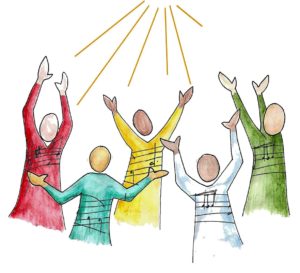 Harmony in music by definition requires different piches to be sung at the same time. The beauty comes from rich blend of different sounds. But do we know how to do that in conversation?
Harmony in music by definition requires different piches to be sung at the same time. The beauty comes from rich blend of different sounds. But do we know how to do that in conversation?
A friend once told me, “Sometimes when you speak NVC I want to gag”. Of course my initial impulse was to defend NVC. It’s so helpful! It provides clarity I really enjoy!
But then I caught myself and offered empathy instead. I learned that my friend valued authenticity and sometimes NVC language sounds made up. She couldn’t feel my presence in the words I was saying. She also values creativity and fun with language, and classic NVC sounds, well, boring.
If we just strive for agreement, commonality, consensus, and harmony, we are missing who each of us truly is and everything we can learn from each other. By exploring a difference instead of resisting it, I gained awareness of the range of NVC-like speech I use. I learned that sometimes I sound more mechanistic, and sometimes I translate the NVC approach into my Emma-like way of expressing things, which can actually help connection because more of who I am is in my words. Since connection is the goal of NVC–not to “do NVC perfectly”–this was valuable information for me.
I was also connected with my own love of language, and enjoyed being appreciated for the unique “Emma-ness” of my expression. By seeking to understand another’s uniqueness, I was also able to celebrate my own.
And of course, empathy opens doors, so we were able to eventually connect around the gifts NVC has brought to both of us.
Disagreement is an invitation to learn from each other and love more deeply.
Conflict shows us the parts of each other we haven’t fully explored yet. It shows us the places where we are so afraid to be different that we tighten up. It shows us what matters to us, and what needs attention.
What if weren’t afraid to disagree, because we had a process to explore difference that felt safe? Without fear, the inevitable result of curiosity and empathy and the desire to know another is mutual caring, wholeness, and healing.
Being included, belonging, contribution: so many needs depend on being seen. The most painful punishment we can inflict on another human is to ignore them. And isn’t avoiding conflict a way of ignoring an important part of someone’s reality? What we shy away from creates shame in the other. This is the refusal to know someone–a refusal to see them or allow them to be different (be themselves) in your presence.
Once you truly see someone, you can’t help but love them.
We consider ourselves most deeply bonded to the people who know us best, or who have known us the longest, or who know us in a particularly meaningful way. Finding ways to see and know each other is an essential part of connecting, healing, and creating peace.
One of the first steps in humanizing someone is to learn something about them personally. The more you know of their story, the more connected you feel.
And it works both ways–the more we see and celebrate in others, the more we allow ourselves to be free.
I want to hold a space big enough for all of us to be ourselves, no matter how different we are. And then go further–and actually seek to understand and explore those differences, so we are all fully known.
It’s not easy. To be honest, I often suck at it. I was raised on argument and criticism, not understanding and empathy. But I think it’s worth trying for.
Reveal more of yourself. Inquire more about others. Celebrate the differences. Share more. Accept more. Allow more. And enjoy the richness of a world where it’s safe to be different.
Self-love is a set of skills you can learn
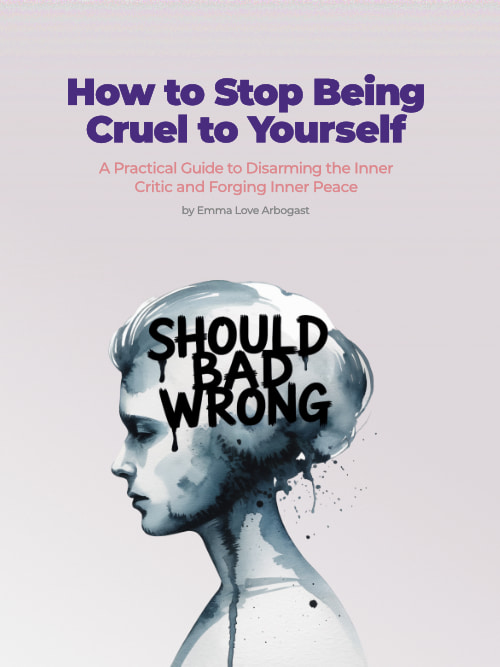
Stop Being Cruel to Yourself
$2.99
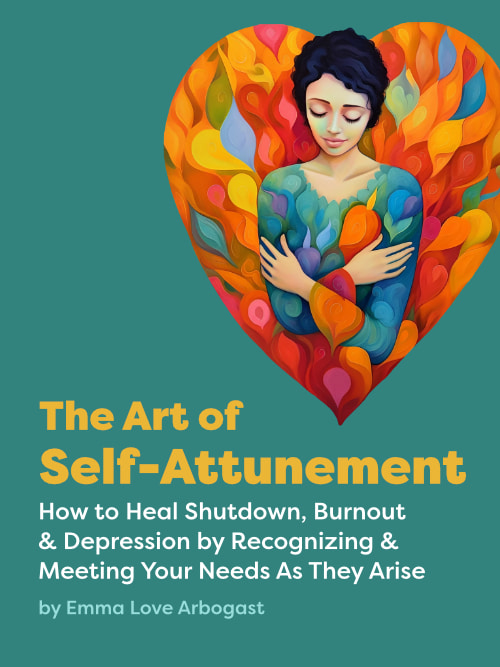
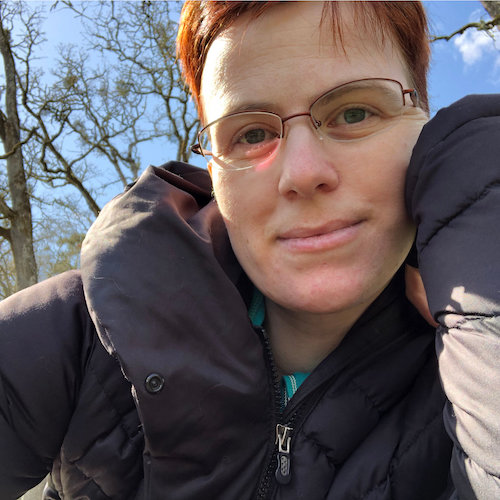
Hey there! If you're new here, welcome to the Emmaverse! 🌈✨
About me: I'm autistic/ADHD and I write about how to be free and happy from the inside out.
Keep in touch?
Self-Liberation Society
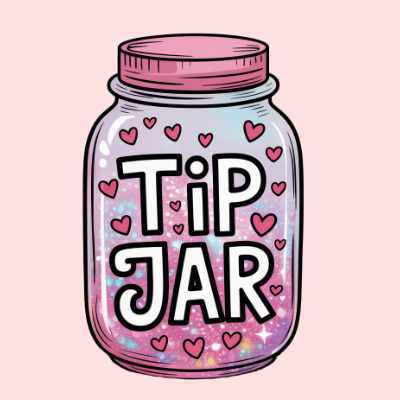
Thank you Emma! I’m just starting the NYCNVC Compassion course and found this very helpful insight as I begin.